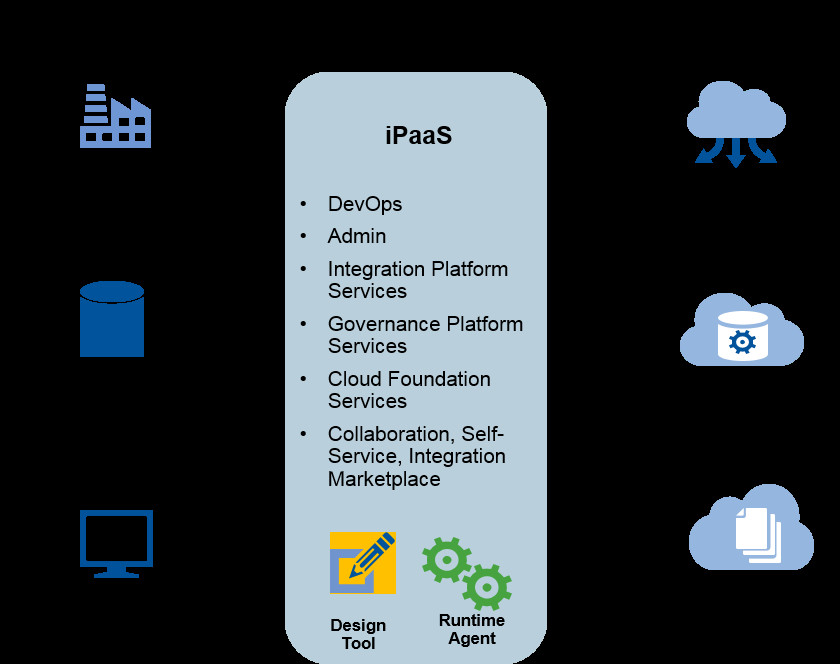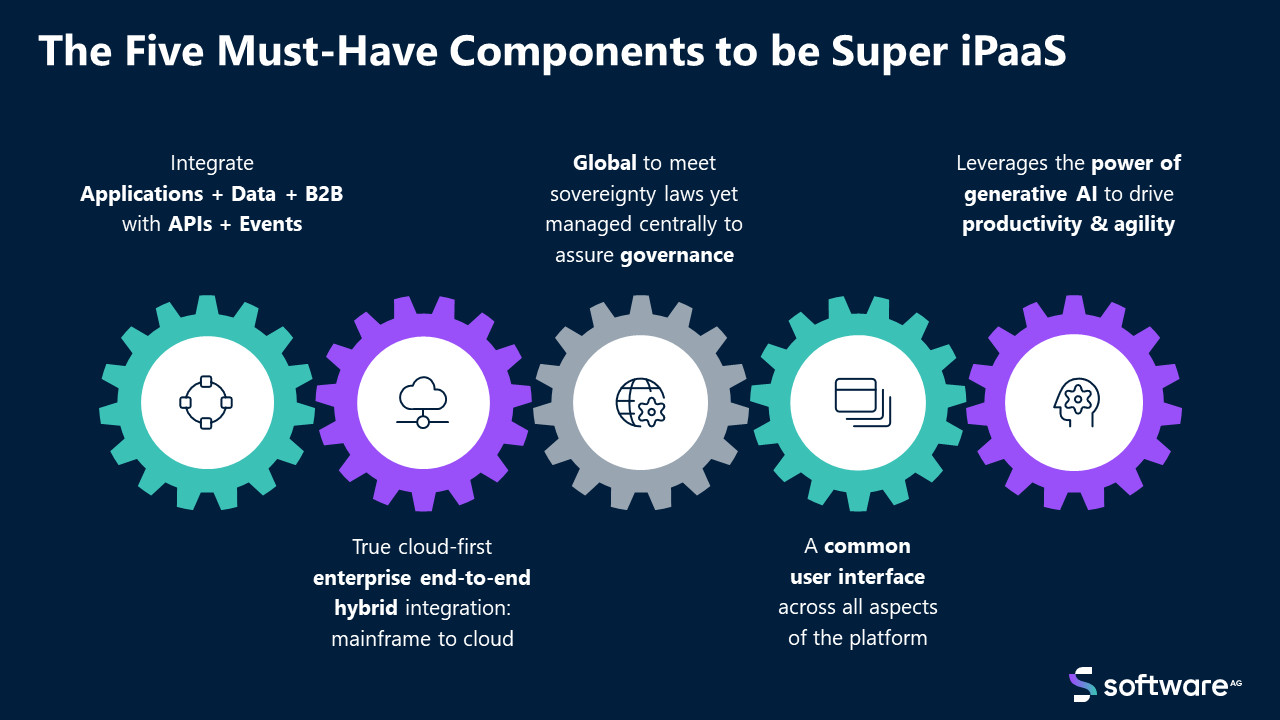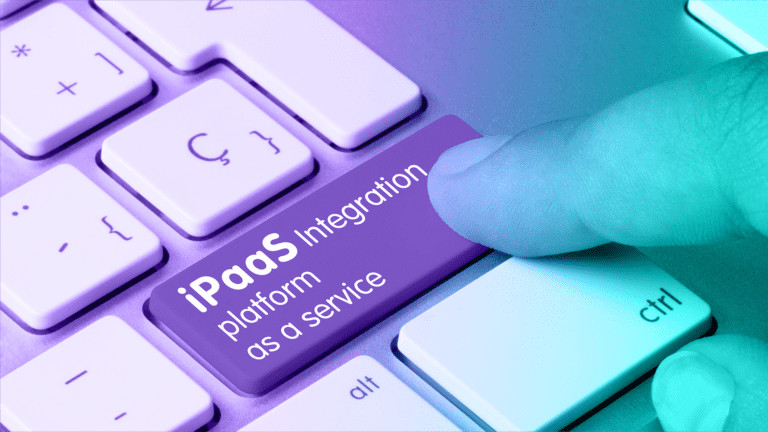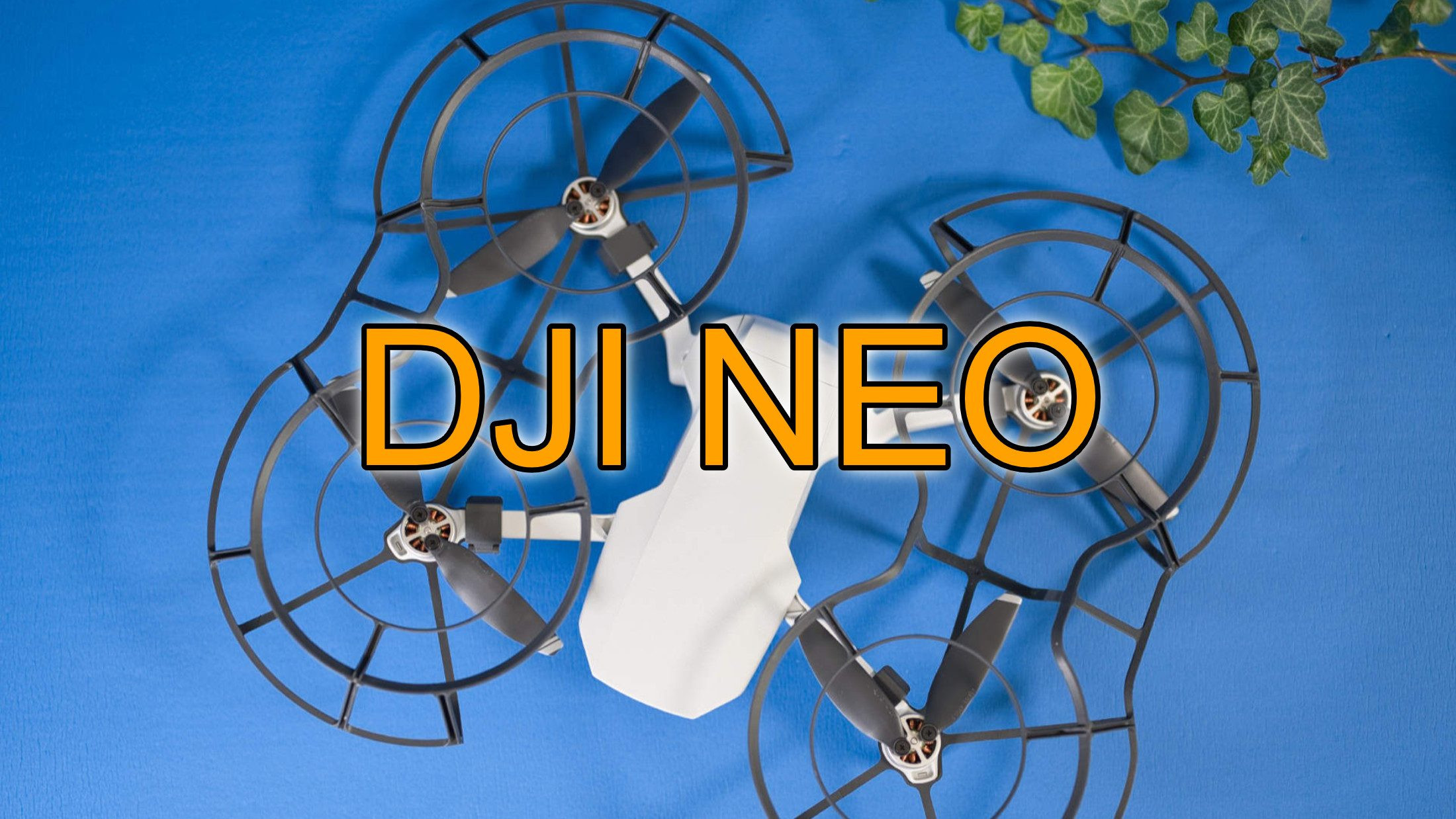The Rise of iPaaS: A Modern Solution for Enterprise Integration
The past two decades have witnessed a dramatic shift in how enterprises operate, driven largely by the adoption of Software as a Service (SaaS). As departments across organizations embraced specialized applications to meet their unique needs, software spending became decentralized, resulting in an explosion of applications – a phenomenon known as app sprawl. This rapid proliferation of apps has created significant challenges for integration, making it imperative for businesses to find efficient and effective solutions.
Why Integration Matters: The Three Key Challenges
Integration goes beyond simply ensuring data flows between systems; it’s about enabling different applications to work together seamlessly to support business processes and innovation. There are three primary challenges that integration effectively addresses:
Data Consistency
Organizations often find themselves with various systems requiring access to the same data. Without proper integration, discrepancies can arise, leading to errors and inefficiencies. Ensuring data consistency means that all applications are working with the most up-to-date information, minimizing errors and enhancing decision-making.
Business Process Automation
Business processes often span multiple applications. For example, a single customer order might involve the CRM, the inventory management system, and the shipping platform. Integration allows these independent apps to collaborate, automating complex, multi-step processes for improved efficiency and speed.
Building New Services
Modern businesses increasingly rely on APIs to create new services by combining actions across multiple apps and data sources. Integration platforms enable the creation of these composite services, offering new capabilities without the need to build everything from scratch. For instance, a unified customer service dashboard might require pulling information from various support and feedback tools.
Traditional Integration Challenges: The Roadblocks to Efficiency
While the benefits of integration are undeniable, achieving it has historically been fraught with challenges. Traditional methods often involved custom-built solutions that were time-consuming, costly, and heavily reliant on scarce technical expertise. With the growing IT skills shortage, many organizations struggled to find and retain the talent necessary to build and maintain these complex integrations.
iPaaS: The Modern Solution
This is where Integration Platform as a Service (iPaaS) steps in as a game-changer. iPaaS offers a modern, cloud-based solution to standardize and simplify the integration process, supporting a wide range of integration needs, from data synchronization to process automation and API management. By providing a user-friendly interface and pre-built connectors, iPaaS empowers both IT and business users to create and manage integrations without deep technical expertise.
iPaaS: A Closer Look
The Evolution of iPaaS: A Journey Through Generations
The iPaaS sector has experienced a significant evolution over the past two decades, with each generation offering unique capabilities and addressing specific challenges. Understanding this evolution is crucial for IT leaders to choose the right iPaaS solution for their organization's needs.
Legacy iPaaS
The first generation of iPaaS platforms emerged during early attempts at cloud integration, offering features like error handling and monitoring. These platforms effectively addressed the needs of organizations with robust IT departments and dedicated teams of developers. However, their need for near-constant monitoring and maintenance placed a significant strain on resources, especially for companies under pressure to deliver immediate results cost-effectively.
Second Generation iPaaS
While legacy iPaaS laid the foundation, the second generation aimed to address the challenges of complexity and cost associated with their predecessors. With a focus on simplicity, second-generation platforms sought to attract less technically skilled users with decentralized creation and integration management. While these platforms offered simplified automation capabilities for business users, they struggled to automate complex processes commonly used across enterprises, such as those in back-office and finance operations. Simple task automation might achieve quick wins and small goals, but true transformation requires a holistic view of all processes.
Modern-Day Advanced iPaaS: The Next Level of Integration
The pandemic, combined with economic pressures and labor shortages, accelerated the transition to what is now known as the age of digital transformation. The role of the IT department has evolved from purely technical decision-making to collaborating with every department and playing a larger role in business strategy. This shift demands a new approach to integration.
Advanced iPaaS emerges as the solution that combines the power of legacy platforms with the simplicity of the second generation. These platforms are designed to automate the development and maintenance of integrations, freeing up valuable time for IT departments to focus on larger business objectives.
Unlike second-generation platforms limited to automating simple, isolated tasks, advanced platforms leverage custom, pre-built integrations that connect a wide range of business processes, from customer service to sales, while also allowing for more complex integrations for technically inclined users. Additionally, these platforms embrace AI-based error resolution to automatically resolve issues as they arise, saving valuable time that would otherwise be spent troubleshooting.
The Future of Integration: Embracing Advanced iPaaS
The future of integration lies with platforms that balance accessibility with robust functionalities. While the first generation of iPaaS introduced enterprises to a new way of streamlining workflows, the market is now ready for a revamped platform that harnesses the power of AI and an intuitive interface to drive broader change across the enterprise. For enterprises looking to do more than just survive, advanced iPaaS will empower them to grow into industry leaders.
Conclusion: iPaaS – The Catalyst for Enterprise Transformation
The evolution of iPaaS has been a journey marked by innovation, addressing the ever-changing needs of modern enterprises. From legacy platforms to the emergence of advanced solutions, iPaaS has become an essential tool for organizations seeking to streamline workflows, enhance efficiency, and achieve true digital transformation. As businesses continue to embrace technology, advanced iPaaS will undoubtedly play a pivotal role in shaping the future of integration and driving success in a competitive landscape.



















